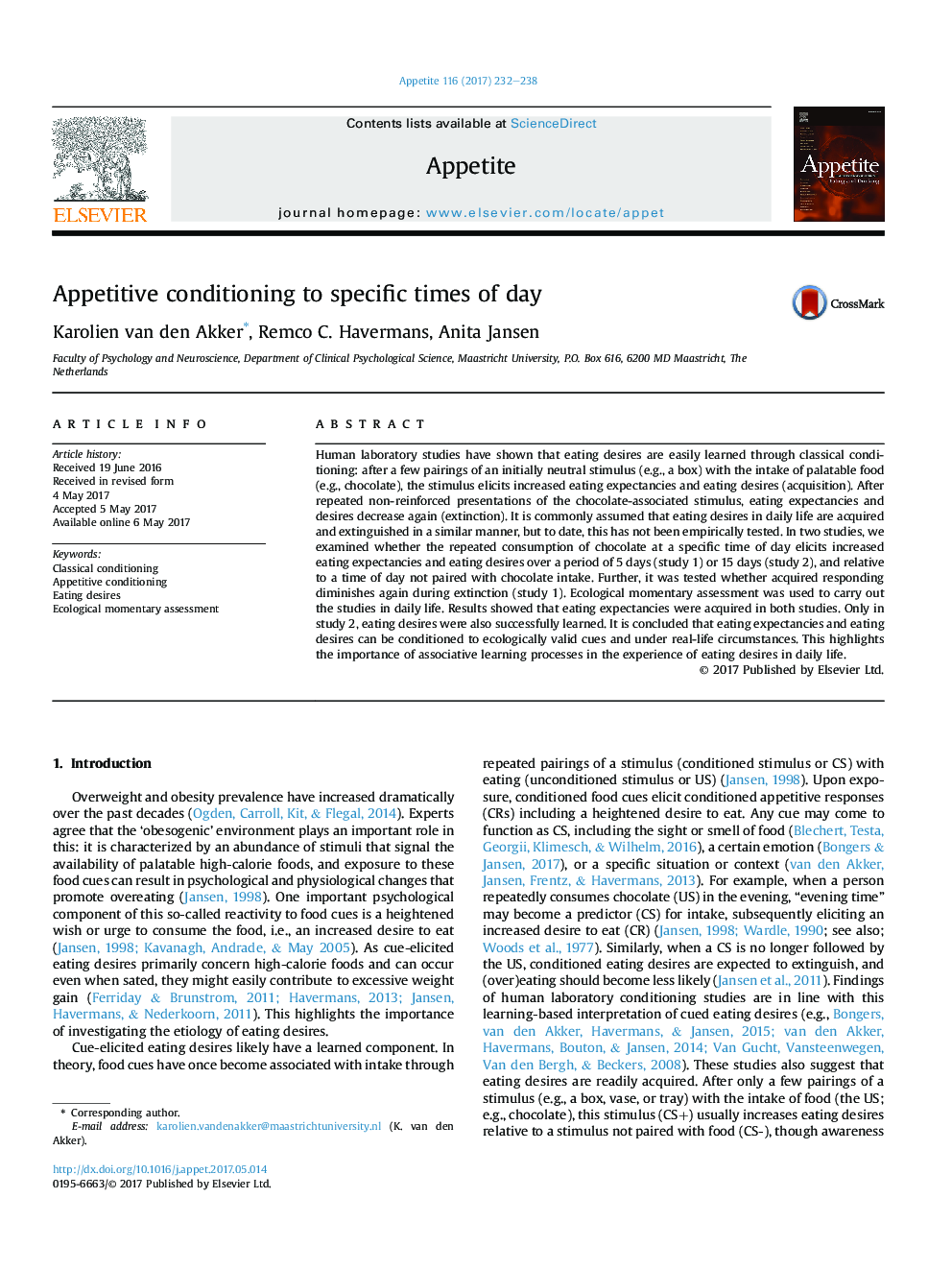| کد مقاله | کد نشریه | سال انتشار | مقاله انگلیسی | نسخه تمام متن |
|---|---|---|---|---|
| 5044002 | 1475364 | 2017 | 7 صفحه PDF | دانلود رایگان |
Human laboratory studies have shown that eating desires are easily learned through classical conditioning: after a few pairings of an initially neutral stimulus (e.g., a box) with the intake of palatable food (e.g., chocolate), the stimulus elicits increased eating expectancies and eating desires (acquisition). After repeated non-reinforced presentations of the chocolate-associated stimulus, eating expectancies and desires decrease again (extinction). It is commonly assumed that eating desires in daily life are acquired and extinguished in a similar manner, but to date, this has not been empirically tested. In two studies, we examined whether the repeated consumption of chocolate at a specific time of day elicits increased eating expectancies and eating desires over a period of 5 days (study 1) or 15 days (study 2), and relative to a time of day not paired with chocolate intake. Further, it was tested whether acquired responding diminishes again during extinction (study 1). Ecological momentary assessment was used to carry out the studies in daily life. Results showed that eating expectancies were acquired in both studies. Only in study 2, eating desires were also successfully learned. It is concluded that eating expectancies and eating desires can be conditioned to ecologically valid cues and under real-life circumstances. This highlights the importance of associative learning processes in the experience of eating desires in daily life.
Journal: Appetite - Volume 116, 1 September 2017, Pages 232-238
